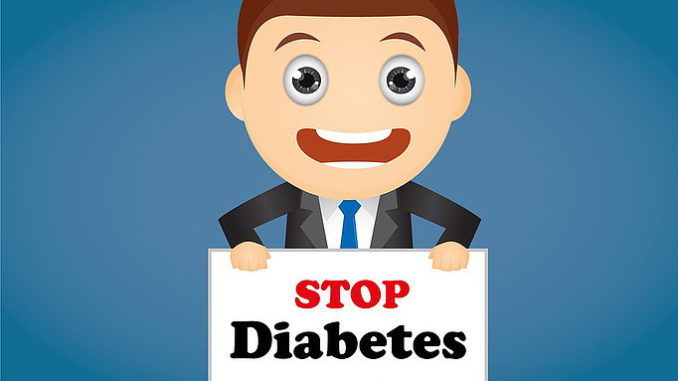
I’m used to being in the minority when it comes to political issues. So, I expect nothing less when it comes to the topic of what I’m about to write.
As I was scrolling through my Facebook feed recently, I came across this advertisement from the North Dakota Department of Health:

Being the limited government advocate that I am, I immediately wondered why North Dakota is spending time, energy, and especially money on such an advertisement? After a little digging, I discovered something that I didn’t know. North Dakota has an entire program – web site and all – devoted to the subject of diabetes. It’s called the “North Dakota Diabetes Prevention and Control Program”.
Not only do they have a program, but according to their 2016 report to the North Dakota Legislative Management there are 42 Diabetes Self-Management Education (DSME) sites spread across the state in which “people with diabetes can access quality education”.
This particular advertisement that I came across on Facebook is part of a, “Professional advertising campaign with messages targeting the adult population with prediabetes.” According to the North Dakota Department of Health, our state has an estimated 202,000 adults (4 out of 10 people) aged 20 and older that have prediabetes.
The total number of North Dakotans estimated to suffer from diabetes is listed at 49,000 (1 out of 11 people).
The justification for the entire program is based on the North Dakota Department of Health’s estimate that the disease cost North Dakota over $700 million in 2014. And I would agree with them– that’s a lot of money.
I would also agree with them when they say that, “Optimizing care and education for those with diabetes also improves the quality of life and saves money through the prevention of diabetes complications.” Where I disagree is the role that the government – at any level – should be playing. Do we really need the government to tell us how risky it is to be overweight and out of shape? Do we really need them to explain to us what is necessary to reduce the risk of something like diabetes? Is it necessary to spend taxpayer dollars to develop an entire program around such an issue? I don’t believe that it is.
Now to be fair, the advertising campaign that I mentioned above looks to be about $200,000 and comes from the federal Center for Disease Prevention and Control 1305 Grant. It’s a paltry amount in comparison to overall budgets, and is obviously not the total amount that funds the North Dakota Diabetes Prevention and Control Program. But that’s not the point. It is programs like this that are found throughout federal and state budgets. It is programs like this that unnecessarily cost taxpayers a lot of money.
But if we’re going to relent in the name of “investment” or “public health” or whatever catch phrase that can be used to justify government spending, shouldn’t we at least have some accountability for outcomes?
If the entire program is based on the disease costing the state $700 million and the need to reach the 202,000 people with prediabetes, then shouldn’t taxpayers expect to see results in the years ahead? At some point, shouldn’t those numbers begin to tumble?
They most certainly should. But will they? I suggest they won’t. My guess is that in 10, 20, 30 years and beyond there will be marginal – if any – improvement on account of this program. Why? Because government can’t fix it. Period.
The only rational way to reverse the trend of diabetes in North Dakota – or any other health issue for that matter – is through personal responsibility. Individuals must come to recognize their lifestyle involving things like diet and exercise must change. And they sure as heck don’t need the government to help them do that.
But here’s the kicker. When the time comes that the outcomes don’t match the amount of money “invested”, those running the program will likely blame it on not having enough money. That’s just the way government works. And there’s plenty of examples to prove it (War on Drugs, Education, etc.).
When will we ever learn that government is not the solution? In most cases, they are the problem. Limited government and personal responsibility would go a long ways towards improving many of our ills– up to and including something like diabetes.
Sources:
1. http://diabetesnd.org/
2. https://www.ndhealth.gov/NutrPhyAct/Publications/2016_Diabetes_Burden_Report.pdf


